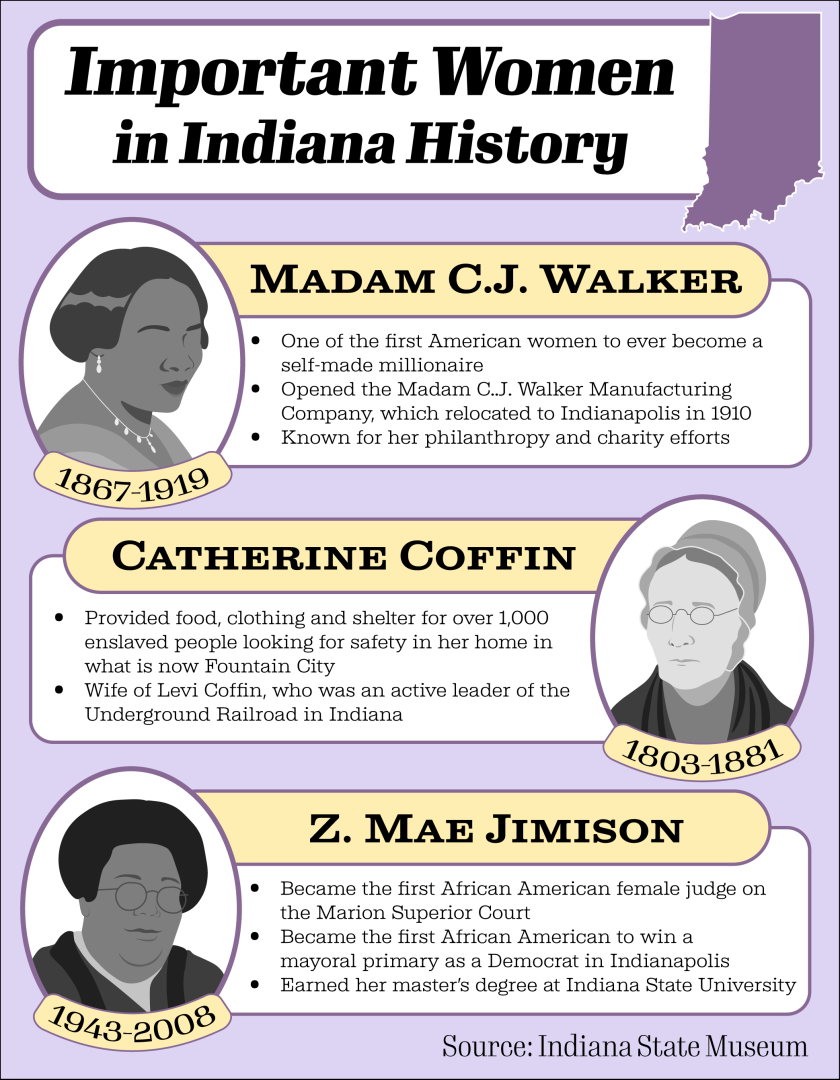By presidential proclamation, Women’s History Month began as Women’s History Week in August 1981, according to The National WWII Museum New Orleans’ website; Congress passed Public Law 100-9 in 1987 which sought to designate the month of March for celebrating the accomplishments and contributions of women throughout U.S. history. Associate Professor of Political Science and Co-Director of the Gender Center Laura Merrifield Wilson said Women’s History Month means a lot, and it is important to consider why there is a month dedicated to women—especially since women make up a larger portion of the population. Merrifield Wilson said that while it is important to look back at the accomplishments of women from the past, the month can also serve as an inspiration for women and girls to break through gender-related limitations, such as getting into politics.
“So when we think of the role that Women’s History Month plays, I think it
provides us two primary functions,” Merrifield Wilson said. “On one hand, it’s the actual history. So it’s looking back and looking for women in politics like Geraldine Ferraro and Jeanette Rankin—women who represented first. … I think it’s also important to inspire and embrace and maybe challenge the seemingly current limitations of, well, we’ve never had a woman governor.”

Since women make up a large portion of the population in Indiana (50.3%, according to U.S. Census Bureau data), Merrifield Wilson said the current state of Indiana’s government does not necessarily have a lot of representation in the form of women in public office. Additionally, according to Merrifield Wilson, there has never been a female governor in Indiana.
“Our state legislature represents everyone in the state of Indiana, even though our
state legislature is overwhelmingly male,” Merrifield Wilson said. “… We know that there’s value in symbolic representation. And that’s the idea, that having more women in elected office is beneficial because more women want to run for elected office, more women will be more politically engaged, more little girls will look up and see women in public office and say, ‘I can be that, I want to be that when I grow up, that’s going to be me.’”
From a sociological perspective, Assistant Professor of Sociology Liz Ziff said the concept of intersectionality—the understanding of the way that different facets of one’s identity intersect to produce different social realities—gives way for individuals to have difficult conversations about social disparities, including gender disparities. Having the terms to describe these complex sociological concepts enables more voices to be at the table where their diverse experiences can be acknowledged, according to Ziff.
“… In some of our more mainstream, even academic orientations towards questions about gender, that true intersectional lens kind of falls flat. We maybe talk about it, but it’s not enacted,” Ziff said. “And again, we also still see some of those structural components where we maybe have pushed in, we can see or point to areas where there’s more representation, or I think, a really, maybe mainstream and possibly familiar example is going to be the wage gap. So we talk about the wage gap a lot. And if we, you know, most of the time, the stuff that gets thrown out there is when we’re looking at … men compared to women, right? But there’s more to that picture.”
According to Ziff, things such as Women’s History Month can give more visibility to societal disparities and provide a space for acknowledgment and ways to push forward. Despite this, Ziff said that, in our society, when trying to celebrate a population, it almost enables individuals to not do deeper work addressing these issues.
“Do you have maybe implicit biases that are misogynistic, or sexist or whatever it might be?” Ziff said. “I think asking those really hard questions about, you know, how do we ensure that there’s equal pay for equal work, regardless of a person’s background? But then it goes even deeper. How are we making sure that the education system is truly equal for all people, and that there’s this access to opportunity and access to whatever skill development there needs to be? So it really quickly ballooned out to a lot of like, huge structural issues, that can be very overwhelming.”
Ziff said to take the month as a personal challenge to learn more and dig deeper into how the world can be experienced differently by different groups of women. Additionally, Merrifield Wilson said Women’s History Month is not just about thinking about what has happened, but can also serve as a charge to action to do more—and this sentiment does not extend exclusively to women.
“I would say a lot of times we think of things like this, like Women’s History Month really just matters to women,” Merrifield Wilson said. “And that would be wrong.”







